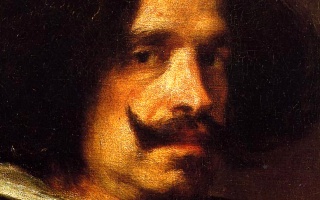Egyptian gods, their powers and importance.
The ancient Egyptians worshipped a pantheon of gods and goddesses who were thought to control the forces of nature and human fate. The most important gods were Amun, Re (or Ra), Osiris, Isis, Horus, Set, and Nephthys. For trivia lovers, it’s good to have a decent grasp of the Egyptian gods and their importance. They often turn up on Jeopardy!, America’s most popular quiz show.
The gods played a significant role in the lives of the ancient Egyptians. Each god represented an aspect of life or the natural world, and their powers were believed to be immense. Temples were built in their honor, and the pharaohs were considered to be their earthly representatives. An important part of Egyptian culture, the gods often featured in works of art, including paintings, sculptures and hieroglyphs.
Here are some specific Egyptian gods, with a brief description of their importance and a clue or two from Jeopardy!
• AMUN was the king of the gods and the god of the air. He was considered the creator of the universe, and his temple at Karnak was one of the most important religious centers in ancient Egypt. Amun was the patron deity of Thebes in the 21st century BC until the 16th century, when his fusion with the sun god, Ra, created the syncretic god Amun-Ra (or Amun-Re)
MYTHOLOGY $1600: The Egyptian sun god Re became identified with this god of Thebes & their names were joined together
• RA or RE was the god of the sun. He was worshipped as the patron of kings and pharaohs.
IT’S ALL A MYTH $1200: In Egyptian myth this 2-letter sun god is the ancestor of the pharaohs
• ISIS was the goddess of moon, magic and fertility. She was the sister and wife of Osiris and mother of Horus. The Temple of Isis at Philae was built and completed during the reigns of Ptolemy II and Ptolemy III. In the late 20th century, during the construction of the Aswan Dam, the temple was moved to the island of Agilka and is a popular tourist attraction nowadays.
CLEOPATRA $2,000 (Daily Double): When she took the throne of Egypt, Cleopatra claimed to be the living embodiment of this Egyptian goddess
• OSIRIS was the god of the underworld and resurrection. He was the husband of Isis, and his death and resurrection were central to Egyptian religious beliefs.
MYTHOL-“O”-GY $800: He’s the Egyptian god of judgment & resurrection
• HORUS was the god of the sky and war. He was considered to be the son of Isis and Osiris, and he was often depicted as a falcon or a hawk.
MYTHOLOGY $2000: In Egyptian mythology, this 5-letter moon god with the head of an ibis also ruled over learning & writing
MATH IN THE OLD DAYS $2000: Some think Ancient Egyptians represented fractions using symbols from the eye of this falcon god
• SET was the god of darkness and destruction. He was considered to be the enemy of Horus, and his followers were often persecuted by the Egyptian government.
$2000: The Egyptian god of chaos who killed his brother Osiris has this name, like the third son of Adam & Eve
• THOTH was the god of wisdom, learning, and magic. He was considered to be the scribe of the gods, and his cult was popular among intellectuals and artists.
MYTHOLOGY $2000: In Egyptian mythology, this 5-letter moon god with the head of an ibis also ruled over learning & writing
ANUBIS was a god of the underworld, known for mummifying the dead and guiding their souls. The Greeks called him a “psychopomp”, which crazy as sounds, is a Greek term meaning “guide of souls”. In some myths Anubis was the son of Ra and Nephthys; in others, he was the son of Osiris and Nephthys.
ODD GODS $1000: A holiday for this Egyptian god might be the day of the jackal, since he had a jackal head
Learn more about these and other Egyptian gods and goddesses
We may earn a small commission from qualifying purchases made from Amazon.com links at no cost to our visitors. Learn more: Affiliate Disclosure.









Recent Comments